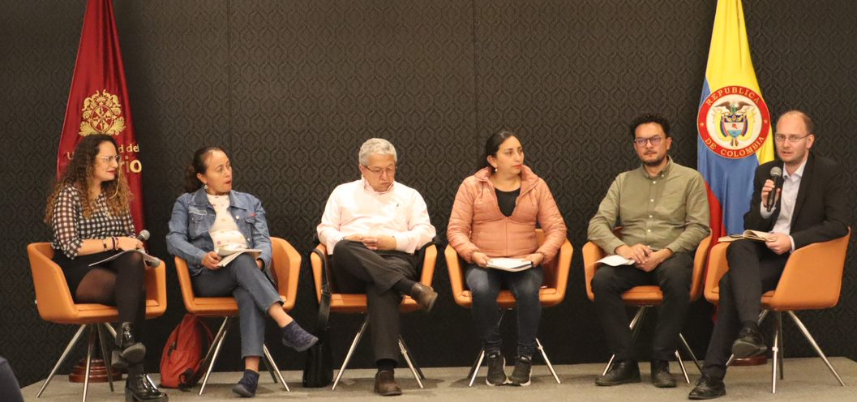
The challenges of paz total and the rural reform: what role do the communities play?

Foto: Universidad del Rosario
A recent note published on the Universidad del Rosario website highlights the CAPAZ Institute’s participation in an event that took place last week, where “community leaders and actors, academia and members of the new government discussed the leadership of the Paz Total policies and the balance of Comprehensive Rural Reform”.
The conference was organised by the Centro de Estudios de Paz y Conflicto (JANUS) at Universidad del Rosario. Besides UR, Universidad Javeriana and Leipzig University in Germany, “in alliance with CAPAZ, the German Foundation for Scientific Research (DFG) and the German Embassy in Colombia, also participated in the organisation of the event, whose purpose was to build a bridge of dialogue between the national government, academia and community leaders, in view of the challenges of peace and the necessary transformation of the countryside through a comprehensive rural reform in Colombia”.
“Laura Camila Barrios, director of the Master’s Degree in Conflict, Memory and Peace at Universidad del Rosario, moderated the panel which included Betsy Ruíz, leader of the Territorial Reincorporation Area in Aguabonita, La Motañita Caquetá, and Paola Bolaños, leader of the Campesino Reserve Area in Cabrera, Sumapaz; CAPAZ director, Stefan Peters, director; Gabriel Jhon Tobón, professor at the School of Environmental and Rural Studies at Pontificia Universidad Javeriana; and Jairo Baquero, professor at the School of Human Sciences at Universidad del Rosario”.
The note published by the university also lists challenges and reflections on the issue of Paz Total:
- Paz total is about agreements, and communities have a fundamental role to play in this.
- After the peace agreement there was a resurgence of armed forces and dissidents, with new acts of assassinations and rearmament.
- We (academia) cannot “take over” the voice of the communities; rather, we are a vehicle, as they have a voice of their own and want to speak for themselves.
- There are many critics of this new concept of Paz Total, including those who took part in the talks and led the dialogue process with the FARC, such as Humberto de la Calle and Juan Fernando Cristo.
- The community must be placed at the centre of decisions, as its leadership and decision-making capacity have allowed agendas and demands to be established.
- The issue of agrarian reform cannot be a rural issue alone; different approaches must be taken. What role does the ethnic chapter play in Paz Total?
- Do Paz Total policies consider all the postulates of the agrarian reform?
- There are many municipalities that were not prioritised as PDET, and this affects them in the allocation of resources.



